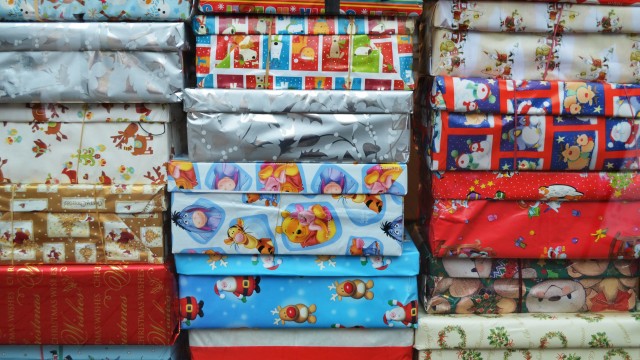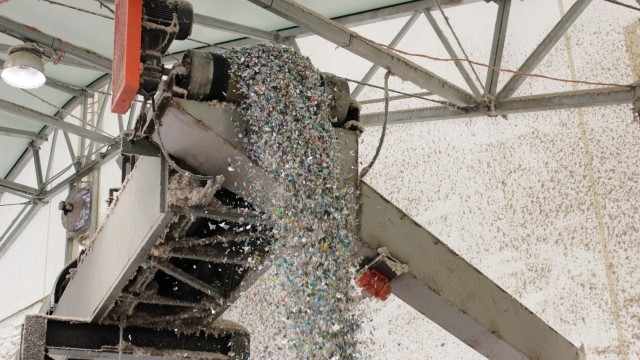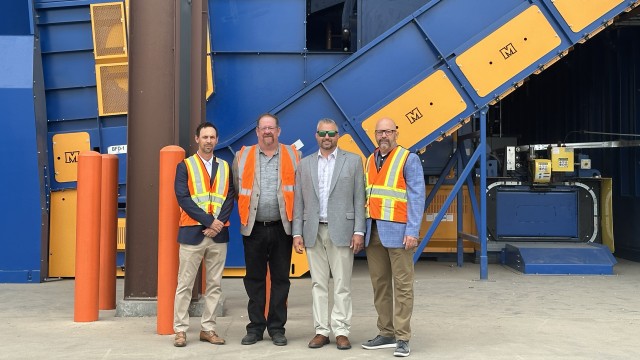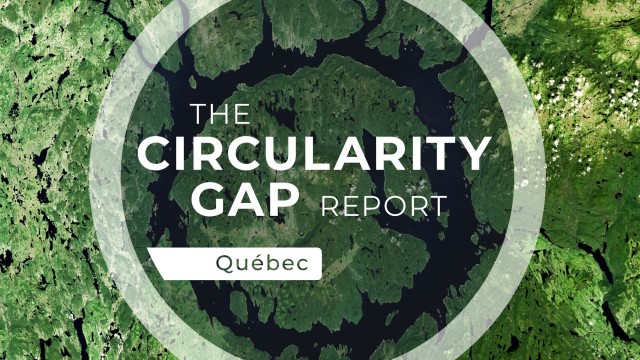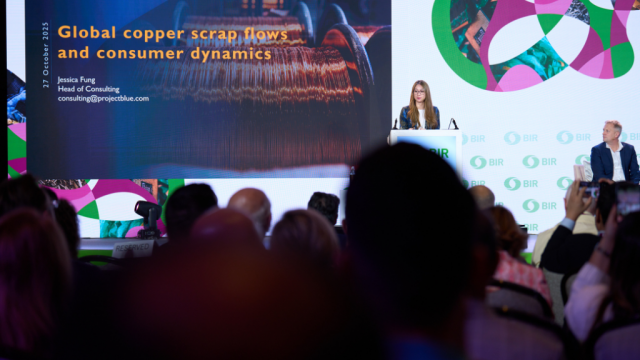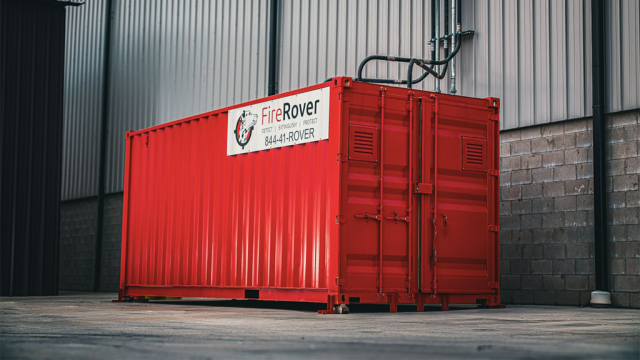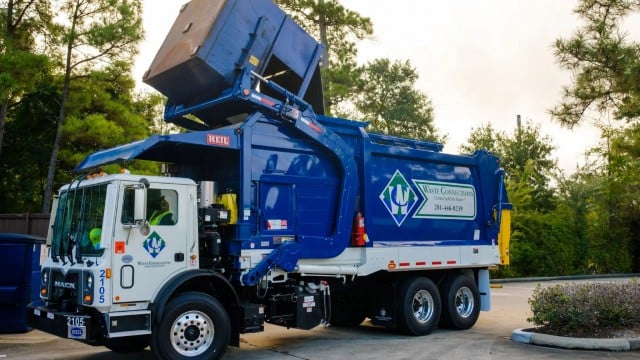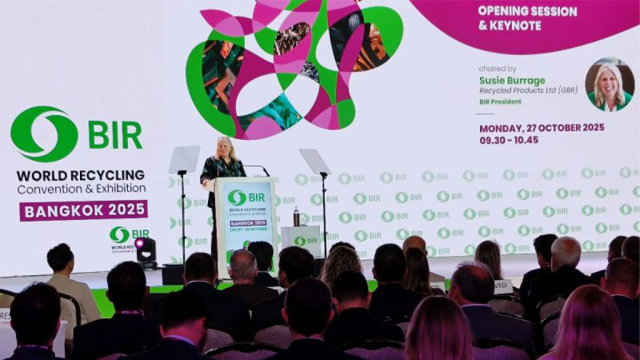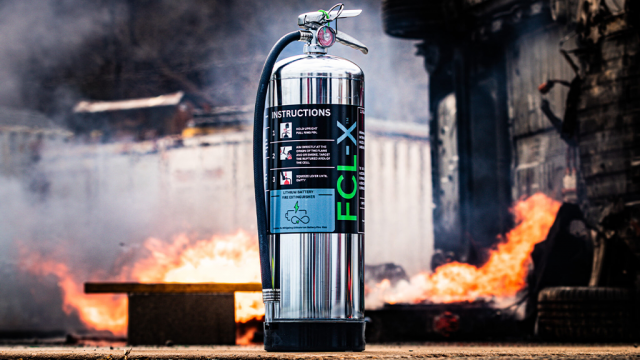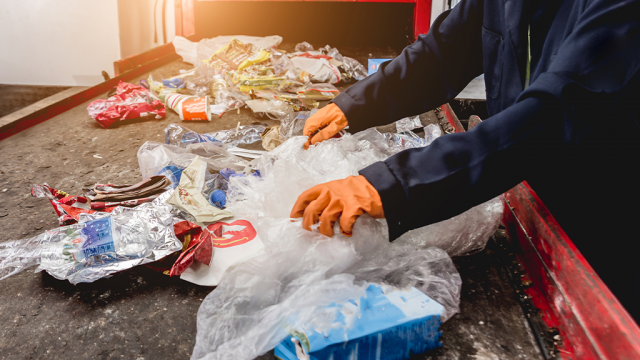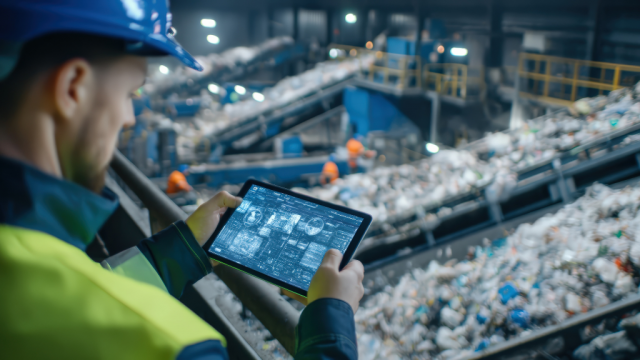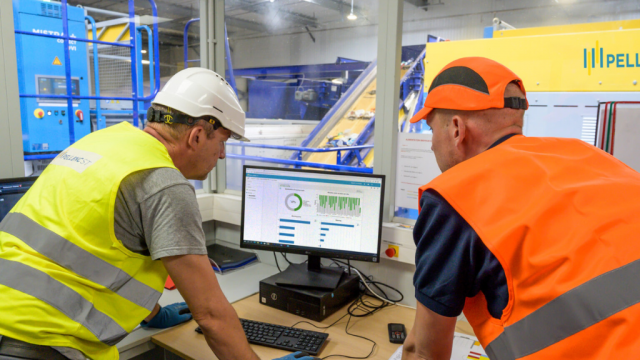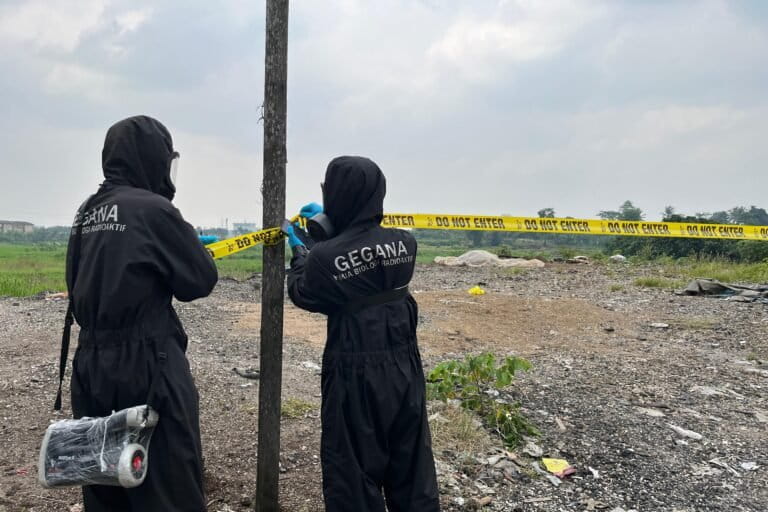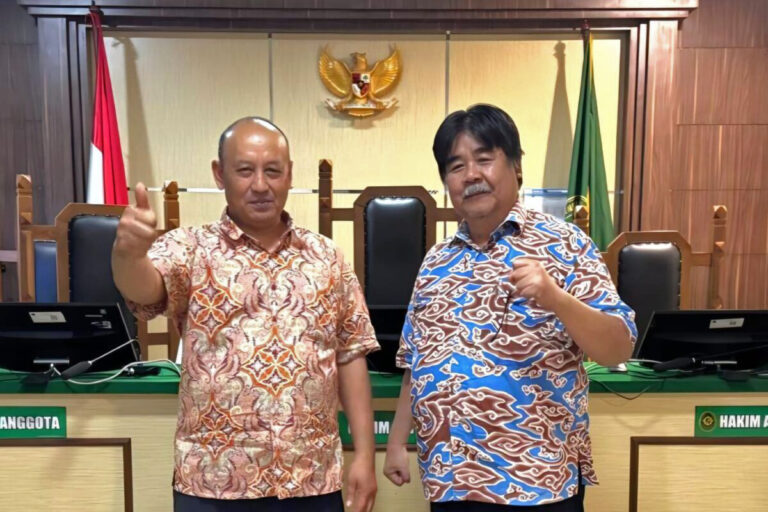-
Guest Idea: Give Your Business An October Efficiency Check
For businesses with outdoor spaces, fall often means ramping up maintenance. However, more mowing and... The post Guest Idea: Give Your Business An October Efficiency Check appeared first on Earth911.
-
Reducing Your Refrigerator’s CO2 Emissions
Your refrigerator is one of the largest appliances in your house, and it runs 24... The post Reducing Your Refrigerator’s CO2 Emissions appeared first on Earth911.
-
Sustainability In Your Ear: The Climate Action Network’s Pre-COP30 Briefing With Rebecca Thissen
Read a transcript of this episode. Subscribe to receive transcripts by email. Ten years after... The post Sustainability In Your Ear: The Climate Action Network’s Pre-COP30 Briefing With Rebecca Thissen appeared first on Earth911.
-
Can Solar Farms Promote Local Food Security, Wildlife Habitat?
A big concern with large-scale solar farms is the impact on land use. Solar developers... The post Can Solar Farms Promote Local Food Security, Wildlife Habitat? appeared first on Earth911.
-
Earth911 Inspiration: Let the Rain Sing You a Lullaby
As we move into autumn, take inspiration from American poet Langston Hughes and embrace the... The post Earth911 Inspiration: Let the Rain Sing You a Lullaby appeared first on Earth911.
-
A DIY Face Wash Recipe Worthy of Cleaning Every Face
In this episode of Earth911TV, we spotlight a nifty DIY face wash recipe sure to eco-clean... The post A DIY Face Wash Recipe Worthy of Cleaning Every Face appeared first on Earth911.
-
Going Beyond Beekeeping to Protect Pollinators
It’s not a stretch to say that civilization depends on pollinators. More than a third... The post Going Beyond Beekeeping to Protect Pollinators appeared first on Earth911.
-
6 Tips for Buying a Used Electric Vehicle (2025 Update)
The used electric vehicle market has reached a turning point. After years of high prices,... The post 6 Tips for Buying a Used Electric Vehicle (2025 Update) appeared first on Earth911.
-
Green Living Tips for Fall
As the brilliant colors of early fall fade in the northern U.S. states, many of... The post Green Living Tips for Fall appeared first on Earth911.
-
Australia celebrates ‘humpback comeback,’ but a main food source is under threat
News of Australia’s “humpback comeback” is making waves globally. Numbers of humpback whales (Megaptera novaeangliae) on the nation’s east coast have rebounded to an estimated 50,000 from a historic low of just a few hundred before commercial whaling was outlawed in the 1970s. And wildlife scientist and whale expert Vanessa Pirotta joins the podcast to
-
Belém faces its social and natural demons as host to COP30
Once a major river city, Belém turned its back on the water, leaving 40% of its urban area vulnerable to floods.
-
Gold mining impacts persist after DRC shuts down company operations: Video
In a new short video, Mongabay visits the Dimonika Biosphere Reserve, a UNESCO site in southwestern Republic of Congo. The government shut down a Chinese company’s gold mining operation in November 2024, but mining pollution and its impacts on local communities persist. Photojournalist Berdy Pambou talked with local artisanal gold miners who accuse the Chinese
-
Drax pellet mill wins appeal to raise pollution limits in small Mississippi town
In April 2025, the town of Gloster, Mississippi, population 858, won a significant battle against the giant global wood pellet maker Drax, when the permitting board of the Mississippi Department of Environmental Quality (DEQ) sided with the small community and denied the company’s request to increase air pollution limits so it could increase its manufacturing
-
Virus outbreak deepens rift over return of Spix’s macaw to Brazil
CURAÇÁ, Brazil — Under the scorching sun of Brazil’s semiarid Caatinga shrubland, squawks tear through the skies, signaling the arrival of one of the most threatened bird species in the world. Quickly, the unmistakable blue silhouettes fly overhead. It’s the Spix’s macaw (Cyanopsitta spixii), a species declared extinct in the wild in 2000 and now
-
Senegal’s great green wall progress falters amid unfulfilled pledges: Study
Earlier in 2025, political and administrative leaders in Senegal gathered to plant trees in a forest in the country’s northwest to mark National Tree Day. They took advantage of the ceremony to call for action towards a greener, more resilient and sustainable country. Senegal is one of 11 countries participating in Africa’s Great Green Wall
-
Mexico adopts protections for Atlantic sharks
Mexico recently adopted national regulations protecting several threatened shark species in the Atlantic from being caught or retained as bycatch. Shark conservationists welcome the protections but say they are long overdue, coming years after the country’s commitments to a multilateral fishery regulator. Mexican fisheries catch a significant number of various shark species in the Atlantic
-
Supercharged dust storms are exposing millions to deadly air pollution
More people are getting sick due to sand and dust storms that are now more intense and frequent, contributor Sean Mowbray reported for Mongabay. The intensifying storms have exposed many millions more people to dangerous levels of particulate pollution across the world. In some regions, it has also triggered outbreaks of respiratory and infectious diseases.
-
Bangladesh to reintroduce captive elephants to the wild
Founder’s Briefs: An occasional series where Mongabay founder Rhett Ayers Butler shares analysis, perspectives and story summaries. Bangladesh has embarked on an ambitious plan to end the centuries-old practice of keeping elephants in captivity. The government has begun retrieving privately owned elephants and aims to rehabilitate them in the wild. The initiative follows a 2024
-
Diminished plastics recycling capacity concerns presenters at BIR’s World Recycling Convention
Regulators, producers, and brand owners were called on to "step up" their commitments to plastic recycling and a circular economy at the BIR's World Recycling Convention in Bangkok.
-
eFACTOR3 to distribute Tecnofer’s plastic washing and separation systems
Tecnofer has named eFACTOR3 as its official sales and service partner in the U.S., representing plastics washing and recycling streams. This collaboration combines Tecnofer's globally recognized technology with eFACTOR3's strong presence and technical expertise in the North American market, giving recyclers access to proven systems supported by responsive, local service. Advanced systems for plastics recovery
-
A look at the equipment add-ons helping recycling facilities boost consistency and reduce missorts
Recycling facilities are adapting to rising material complexity, evolving packaging streams, and heightened quality demands. Technology is playing a growing role in addressing these pressures, and VAN DYK Recycling Solutions has been working with operators to implement equipment and system designs that respond to these changing demands.
-
U.S. plastics industry rises to $23.7 billion surplus in 2024
The Plastics Industry Association (PLASTICS) released its annual Global Trends Report shows that the U.S. plastics trade remains a driver of global economic growth. Highlights from the Global Trends Report include: The U.S. resin industry recorded a $23.7 billion surplus in 2024, consistent with 2023 levels. Mexico and Canada remained the largest export markets, with U.S. exports totalling $19.8 billion to Mexico and $14.3 billion to Canada, resulting in the industry's largest trade surplus — $11.6 billion — with Mexico. China was the third-largest export market, with $7.3 billion in U.S. exports (unchanged from 2023), but also the largest source of the industry's trade deficit, amounting to $12.4 billion. The U.S. had a $4.3 billion trade surplus in resin with China in 2024.
-
Republic Services’ recycled plastic flake has 54 percent lower carbon output
Provider of comprehensive environmental offerings, Republic Services, Inc., is producing recycled plastic flake from its Las Vegas Polymer Center for use in sustainable packaging. Packaging made from recycled plastic flake has a significantly lower carbon footprint than representative recycled polyethylene terephthalate (rPET) or virgin PET in the U.S. market. A recently completed product carbon footprint (PCF) study confirms its potential to help consumers decarbonize supply chains and reduce Scope 3 emissions. Bottle-grade clear rPET flake
-
Smart tool integrates APR Design Guide to help brands improve packaging recyclability and compliance
The Association of Plastic Recyclers (APR) announced today at Pack Expo 2025 the new APR Design Assessment Tool designed by Recyda, an APR-managed platform that evaluates the recyclability of entire plastic packages — not just individual components.
-
First-ever vinyl window recycling program reduces construction waste
In a major step toward reducing construction waste while advancing a circular economy, the Vinyl Institute of Canada (VIC), alongside national and international partners, has launched Project Win-Finity, the first Canadian program to recycle post-consumer vinyl windows.
-
RecyClass certifies more than half of Europe’s plastic recycling capacity
Covering 60 percent of Europe's installed plastics recycling capacity, the RecyClass Recycling Process Certification has become the leading certification process for plastics traceability across the region in only three years since its launch.
-
Report shows environmental costs of single-use plastics in healthcare
A new report from global sustainability consultancies Eunomia and Systemiq highlights the healthcare sector's use of single-use plastics, which drive up costs, waste, and greenhouse gas (GHG) emissions.
-
Pemkab Bekasi Bongkar Bangunan Lama Pasar Cikarang - RRI.co.id
Pemkab Bekasi Bongkar Bangunan Lama Pasar Cikarang RRI.co.id
-
Karyawan PT Hakaaston Ciptakan Inovasi Hemat Biaya dan Ramah Lingkungan Melalui Program 'NGIDE' 2025 - VIVA Lampung
Karyawan PT Hakaaston Ciptakan Inovasi Hemat Biaya dan Ramah Lingkungan Melalui Program 'NGIDE' 2025 VIVA Lampung
-
Mahasiswa ABM Ubah Limbah Plastik Jadi Cuan - RRI.co.id
Mahasiswa ABM Ubah Limbah Plastik Jadi Cuan RRI.co.id
-
Kolaborasi, Dua Kampus Ubah Limbah Plastik - RRI.co.id
Kolaborasi, Dua Kampus Ubah Limbah Plastik RRI.co.id
-
Sawokecik Hadirkan Wisata Edukatif Lewat Daur Ulang Sampah - RRI.co.id
Sawokecik Hadirkan Wisata Edukatif Lewat Daur Ulang Sampah RRI.co.id
-
Ini Bahaya Sampah Plastik Untuk Kesehatan - RRI.co.id
Ini Bahaya Sampah Plastik Untuk Kesehatan RRI.co.id
-
DLH Magelang Gencarkan Edukasi Pengurangan Plastik Sekali Pakai - hipmi.co.id
DLH Magelang Gencarkan Edukasi Pengurangan Plastik Sekali Pakai hipmi.co.id
-
Sekolah Kembangkan Edukasi Lingkungan Berbasis Daur Ulang - RRI.co.id
Sekolah Kembangkan Edukasi Lingkungan Berbasis Daur Ulang RRI.co.id
-
Ecobrick Aqua 600ml berat 200 gr – Siap Pakai | Tugas Prakarya Sekolah | Daur Ulang Plastik - Shopee
Ecobrick Aqua 600ml berat 200 gr – Siap Pakai | Tugas Prakarya Sekolah | Daur Ulang Plastik Shopee
-
How recycling in space could transform Earth’s circular economy
Even 384,000 kilometres from Earth, taking out the garbage is still an unavoidable chore. As NASA prepares for a long-term presence on the moon through the Artemis program, the agency faces a familiar challenge — how to manage waste sustainably.
-
7 ways to reduce your pet’s environmental pawprint
Pets make life better. They cuddle, they play, they insist on sitting in the exact spot you were planning to use. But they also generate more waste than most people realize. Between food packaging, litter, and toys that get shredded in two seconds, it all adds up. Small choices, like supporting recycled materials, giving items a second life, and reducing single-use waste, can make a huge difference. Sustainable pet care is less about perfection and more about thinking in circles instead of straight lines. Here are a few tips to make pet ownership more sustainable without sacrificing fun or comfort. 1. Choose durable toys
-
Why curbside programs fail aerosol cans — and how to fix it
The aerosol industry produces over 16 billion cans annually, yet less than 10 percent are recycled, missing a critical opportunity to recover propellants, liquids, and metals for a circular economy. Even leading regions struggle to achieve 20 percent recycling rates, underscoring a pressing environmental challenge. Systemic barriers to aerosol can recycling
-
Tips for a more environmentally friendly holiday season
People love the holiday season, but the traditions that come along with it can create enormous amounts of waste. Between gift wrap, cards, travel and packaging from online shopping, North Americans generate approximately 25 percent more trash than normal during the holiday season, 80 percent of which is thrown away instead of recycled or reused, according to the U.S. Environmental Protection Agency.
-
How to properly dispose of holiday packaging
Republic Services is bracing for an influx of discarded packaging material this holiday season and is offering tips to consumers as they discard boxes, bows and gift bags. The National Retail Federation projects November/December retail sales of $859 billion, up 8.5 percent from 2020. And last year alone, the United States Postal Service delivered 1.1 billion packages during the holiday season and is expecting more of the same this year.
-
Navigating the complexities of the waste hierarchy
As businesses face increasing pressure from regulators, investors, and consumers to take responsibility for the downstream effects of their waste, many are beginning to recognize the need for more sustainable waste management practices.
-
Machinex delivers turnkey material recovery facility in Central Arkansas
Machinex Technologies opened Central Arkansas Recycling & Disposal Services (CARDS) Recycling's new material recovery facility (MRF) on September 12, 2024, in Springdale, Arkansas. Recognizing the growing demand for recycling services and the opportunity to secure a significant contract, CARDS Recycling expanded its operations beyond traditional waste management, marking a strategic entry into the recycling industry.
-
Quebec could reduce its greenhouse gas emissions by up to 45 percent by promoting recycled content
The 2024 Circularity Gap Report was published this week by Recyc-Québec and Circle Economy, and the report urges businesses and consumers to embrace the circular economy for the sake of the environment.
-
Diminished plastics recycling capacity concerns presenters at BIR’s World Recycling Convention
Regulators, producers, and brand owners were called on to "step up" their commitments to plastic recycling and a circular economy at the BIR's World Recycling Convention in Bangkok.
-
Volatile trade and critical mineral supply chains top issues at World Recycling Convention
Recyclers, traders, and manufacturers in the non-ferrous sector must adapt to a profound transformation in volatile global markets, the BIR World Recycling Convention in Bangkok has been told. The Non-Ferrous Metals Division session on October 27 considered the impact on the sector of shifting policies, tariffs, and new technologies — and how being smart with data can help navigate the changes.
-
SWANA partners with Fire Rover to advance battery safety and mitigate fire hazards
The Solid Waste Association of North America (SWANA) has collaborated with its newest corporate partner, Fire Rover, to address the growing risks associated with lithium-ion batteries and fire safety in the waste and resource management industry.
-
Waste Connections Q3 2025 results show lower profits despite higher revenue
Waste Connections, Inc. shared its results for the third quarter of 2025 with positive results despite reporting lower profits than expected. Aside from lower profits, the company has also reported higher revenue and plans to end the year on track with its previous outlook. Q3 2025 results
-
BIR celebrates largest membership yet at World Recycling Convention in Bangkok
The 2025 Bureau of International Recycling's World Recycling Convention in Bangkok is focusing on how recyclers benefit from the growing demand for secondary materials during a seismic shift in the world order. As well, the convention has also opened the event by noting a remarkable increase in industry participation; the 2025 convention has officially achieved its largest membership in its 77-year history.
-
FCL to expand lithium battery fire extinguishing products in U.S. with new distributors
Full Circle Lithium (FCL) has added two new U.S.-based distributors and representative partners to expand its national network to ten distributors for its FCL-X lithium battery fire extinguishing product lines. Expansion across the U.S. with strong distribution channels
-
Closed Loop Partners' best practices guide aims to improve MRF performance
Closed Loop Partners' Center for the Circular Economy, in collaboration with American Beverage, released a new best practices guide for materials recovery facilities (MRFs) in the U.S. The guide supports MRFs in their work to optimize recovery rates, increase material quality, and foster resilient operations. The guide, Materials Recovery Facilities: Effective Operation, Design and Management in Theory and in Practice, draws on insights from leading public and private MRF operators, recycling equipment vendors, recycling industry experts, and others, establishing the industry standards needed to improve U.S. recycling infrastructure.
-
Letter from the Editor: Recycling runs on technology
Recycling facilities are dealing with a lot right now. MRFs are juggling increasingly complex waste streams while still being asked to deliver cleaner material. Scrap yards are facing the constant risk of lithium-ion batteries showing up where they shouldn't. And processors across the board are expected to meet market demand with fewer people on the floor.
-
(VIDEO) Pellenc’s new AI-based analyzer maximizes material recovery
Pellenc ST has introduced AISEE to the market; an AI-based quality control analyzer designed to support operators in achieving high efficiency and top-quality outputs. Unlike traditional sorters, AISEE focuses on monitoring, analyzing, and improving the quality of recyclable fractions, while reducing material losses.
-
Report urges full protection of world’s 196 uncontacted Indigenous peoples
- A comprehensive global report on uncontacted Indigenous peoples, published Oct. 27 by Survival International, estimates that the world still holds at least 196 uncontacted peoples living in 10 countries in South America, Asia and the Pacific region.- About 95% of uncontacted peoples and groups live in the Amazon — especially in Brazil, home to 124 groups. Survival International says that, unless governments and private companies act, half of the groups could be wiped out within 10 years.- Nine out of 10 of these Indigenous groups face the threat of unsolicited contact by extractive industries, including logging, mining and oil and gas drilling. It’s estimated that a quarter are threatened by agribusiness, with a third terrorized by criminal gangs. Intrusions by missionaries are a problem for one in six groups.- After contact, Indigenous groups are often decimated by illnesses, mainly influenza, for which they have little immunity. Survival International says that, if these peoples are to survive, they must be fully protected, requiring serious noncontact commitments by governments, companies and missionaries.
-
Radioactive leak in Banten exposes workers to danger & reveals regulatory failures
- A radioactive contamination scandal in Banten, Indonesia, has left local workers like Sakinah and Roni jobless and exposed to health risks after Cesium-137 was traced to factories in the Modern Cikande Industrial Estate.- Government investigations revealed widespread contamination across 22 companies, prompting cleanup operations and health checks for more than 1,500 residents living near the exposure zone.- Authorities have struggled to find secure storage for the contaminated materials while admitting regulatory lapses that allowed radioactive scrap metal to enter the country unchecked.- Experts and environmental groups are now urging tighter import controls, improved radioactive waste management and stronger coordination among ministries to prevent another silent disaster.
-
Indonesia’s most vulnerable push for nation’s first Climate Justice Bill
- Climate change is forcing migration and deepening inequality across Indonesia, displacing rural residents, Indigenous peoples and those with disabilities — groups least responsible for the crisis.- Fishers and farmers say they’ve been driven abroad by collapsing livelihoods caused by erratic weather, only to face exploitation and unsafe working conditions overseas.- Indigenous and disabled communities are also seeing their food security, mobility and safety undermined, yet they remain largely excluded from government responses and public discourse.- Civil society and affected groups are pushing for Indonesia to pass a Climate Justice Bill, which would enshrine climate justice as a constitutional right and protect vulnerable communities through coordinate national policy.
-
Rare dugong calf sighting in Alor spotlights seagrass & marine mammal conservation
- A rare sighting of a dugong calf in Alor, Indonesia, has renewed focus on the health of the region’s seagrass ecosystem and the species’ fragile future.- Conservationists say the presence of multiple dugongs indicates a thriving habitat, but threats from tourism, habitat loss and limited population data remain pressing concerns.- Authorities and experts are pushing for stronger monitoring and coordinated conservation strategies under a forthcoming national action plan.
-
Indonesia court clears wildfire scientists in case brought by palm oil company
- A district court in a Jakarta suburb has dismissed a lawsuit brought by palm oil company PT Kalimantan Lestari Mandiri against two scientists who provided expert testimony in a 2018 court case that found the palm oil firm liable for wildfires on hundreds of hectares of land in Central Kalimantan province.- Bambang Hero Saharjo and Basuki Wasis, two professors at Bogor Institute of Agriculture, said defending the suit required time that could have been spent in the field or laboratory working to establish the facts in other cases.- Civil society representatives responded to the ruling with relief. The heads of several nonprofits expressed hope that the verdict would provide reassurance to others that corporate actors had limited ability to use the courts against scientists.
-
Indonesia retiree rewilds world’s largest volcano lake as church demands plantation closures
- In 2005, career civil servant Wilmar Eliaser Simandjorang became the first district leader of Samosir, home to Lake Toba, the largest lake in Indonesia and largest volcanic lake in the world.- After retiring, Wilmar devoted his time to building grassroots networks to rewild parts of Lake Toba, while advocating for greater environmental protection in the Sumatran upland.- In 2013, Wilmar declined to accept the Wana Lestari prize awarded by Indonesia’s government, citing what he saw as shortcomings in government initiatives to manage the land.- This year, the largest Batak church, the Batak Protestant Christian Church (HKBP), made a public call for the region’s largest plantation company, PT Toba Pulp Lestari (TPL), to be shut down.
-
New cluster of Tapanuli orangutans discovered in Sumatra peat swamp
- Researchers have confirmed that the critically endangered Tapanuli orangutan, previously thought to live only in Sumatra’s Batang Toru forest, also inhabits a peat swamp forest 32 kilometers (20 miles) away in the Lumut Maju village forest.- DNA analysis of fecal samples verified the Lumut Maju apes as Tapanuli orangutans, marking the first confirmed record of the species outside Batang Toru.- The discovery highlights the conservation value of nonprotected peat swamps, which are rapidly being cleared for oil palm plantations, threatening the orangutans’ survival.- Conservationists warn that the isolated Lumut Maju population, likely fewer than 100 individuals, may not be viable long term unless habitat protection or relocation strategies are implemented.
-
Indonesia falls short in bid to increase its share of southern bluefin tuna catch
- The Commission for the Conservation of Southern Bluefin Tuna (CCSBT), a multilateral body that manages the stock of southern bluefin tuna, held its annual meeting Oct. 6-9 in Bali, Indonesia.- Indonesia pushed for a larger share of the global catch, which is currently dominated by Australia and Japan, but CCSBT members instead kept each nation’s share unchanged.- Members also agreed to once again fully fund a key stock monitoring program, and to set up a future meeting for discussion of seabird protection in the fishery, amid criticism from conservationists that the commission hasn’t done enough to protect seabirds.
-
Nickel mining threatens Raja Ampat ecosystems, communities & conservation: Report
- A new environmental report warns that expanding nickel mining is placing Raja Ampat’s coral reefs, forests and Indigenous communities under intensifying threat.- Using geospatial mapping and field evidence, researchers document how mining concessions overlap with critical ecosystems and biodiversity hotspots within the UNESCO-designated geopark.- They also describe the industry’s deep colonial-era roots, its modern expansion under state and private control and its connections to global electric vehicle supply chains through companies like Tesla, Ford and Volkswagen.- Activists are urging the Indonesian government to revoke all remaining mining permits, enforce no-go zones and shift toward sustainable economic alternatives that protect the archipelago’s ecological and cultural heritage.
-
Astra Festival 2025 Unites Communities with Music, Recognition, and Inspiration - Jakarta Globe
Astra Festival 2025 Unites Communities with Music, Recognition, and Inspiration Jakarta Globe
-
Pertamina Raih 14 Penghargaan DEI & ESG Awards 2025 - Merdeka.com
Pertamina Raih 14 Penghargaan DEI & ESG Awards 2025 Merdeka.com
-
7 Brand Lokal yang Punya Kemasan Refillable, Eco-Friendly Banget! - IDN Times
7 Brand Lokal yang Punya Kemasan Refillable, Eco-Friendly Banget! IDN Times
-
6 Brand Fashion Lokal Asli Surabaya yang Harus Kamu Tahu! - IDN Times Jatim
6 Brand Fashion Lokal Asli Surabaya yang Harus Kamu Tahu! IDN Times Jatim
-
[INFOGRAFIS] Fashion Battle Gen Z Milenial: Lokal atau Internasional? - IDN Times
[INFOGRAFIS] Fashion Battle Gen Z Milenial: Lokal atau Internasional? IDN Times
-
Kian Melejit, Local Heroes Brand 2024 Berikan Penghargaan Brand Lokal - IDN Times
Kian Melejit, Local Heroes Brand 2024 Berikan Penghargaan Brand Lokal IDN Times
-
Forestry Students of Universitas Brawijaya Contribute to the 2024 Indonesia Sylva National Working Meeting - Prasetya UB
Forestry Students of Universitas Brawijaya Contribute to the 2024 Indonesia Sylva National Working Meeting Prasetya UB
-
Kiranamulya Budi Arthanti: Rattan Planting Leader in the Meratus Mountains - Indonesia Expat
Kiranamulya Budi Arthanti: Rattan Planting Leader in the Meratus Mountains Indonesia Expat
-
Ancaman Perubahan Iklim, PHE OSES Lepasliarkan Ribuan Penyu di Pulau Sabira - Infobanknews
Ancaman Perubahan Iklim, PHE OSES Lepasliarkan Ribuan Penyu di Pulau Sabira Infobanknews
-
Belajar dari Sampah, Kampung Edukasi Sekardangan Sidoarjo Jadi Inspirasi Pengelolaan Lingkungan - kabarbaik.co
Belajar dari Sampah, Kampung Edukasi Sekardangan Sidoarjo Jadi Inspirasi Pengelolaan Lingkungan kabarbaik.co
-
Coca-Cola Jadi Perusahaan Pertama di Hong Kong yang Daur Ulang Botol Plastik Jadi Botol Baru Lewat Fasilitas - SidakNews.com
Coca-Cola Jadi Perusahaan Pertama di Hong Kong yang Daur Ulang Botol Plastik Jadi Botol Baru Lewat Fasilitas SidakNews.com
-
The Southern Hotel Surabaya Hadirkan Pojok UMKM Spesial Hari... - Telusur
The Southern Hotel Surabaya Hadirkan Pojok UMKM Spesial Hari... Telusur
-
Atasi Masalah Lingkungan, Ibu-Ibu PKK Tanjung dan Tim PKM Unwiku Ubah Sampah Plastik Jadi Tas Cantik - Suara Merdeka Banyumas - Suara Merdeka Banyumas
Atasi Masalah Lingkungan, Ibu-Ibu PKK Tanjung dan Tim PKM Unwiku Ubah Sampah Plastik Jadi Tas Cantik - Suara Merdeka Banyumas Suara Merdeka Banyumas
-
Pegadaian dan Masjid Salman ITB Inisiasi Teknologi Daur Ulang Air untuk Lingkungan - Pelantar.id
Pegadaian dan Masjid Salman ITB Inisiasi Teknologi Daur Ulang Air untuk Lingkungan Pelantar.id
-
Inspirasi Gaya Hidup Ramah Lingkungan untuk Anak Muda - Pojok Bogor - Pojok Bogor
Inspirasi Gaya Hidup Ramah Lingkungan untuk Anak Muda - Pojok Bogor Pojok Bogor
-
8 Inspirasi Kostum Kreatif untuk Karnaval HUT ke-80 RI - Pikiran Rakyat
8 Inspirasi Kostum Kreatif untuk Karnaval HUT ke-80 RI Pikiran Rakyat
-
10 Ide Baju Karnaval 17 Agustus 2025, Unik, Kreatif, dan Siap Curi Perhatian - Liputan6.com
10 Ide Baju Karnaval 17 Agustus 2025, Unik, Kreatif, dan Siap Curi Perhatian Liputan6.com
-
Merdeka Maksimal! Inspirasi 10 Kegiatan Seru untuk HUT Ke-80 RI - BeritaSatu.com
Merdeka Maksimal! Inspirasi 10 Kegiatan Seru untuk HUT Ke-80 RI BeritaSatu.com




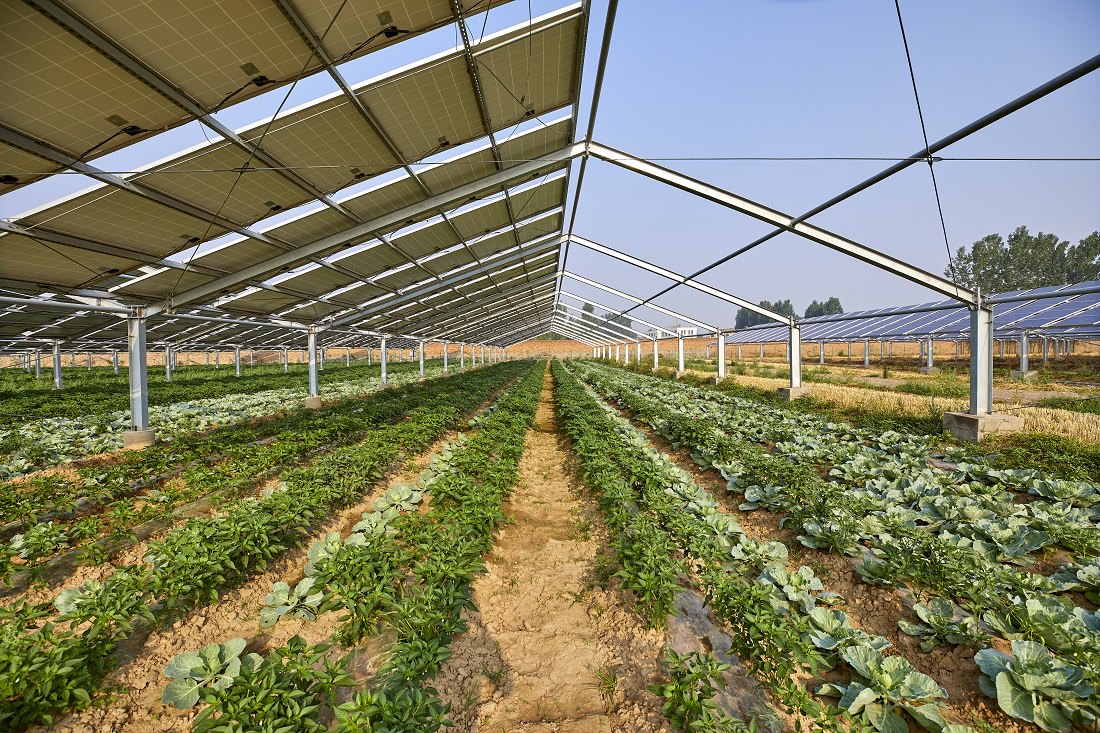
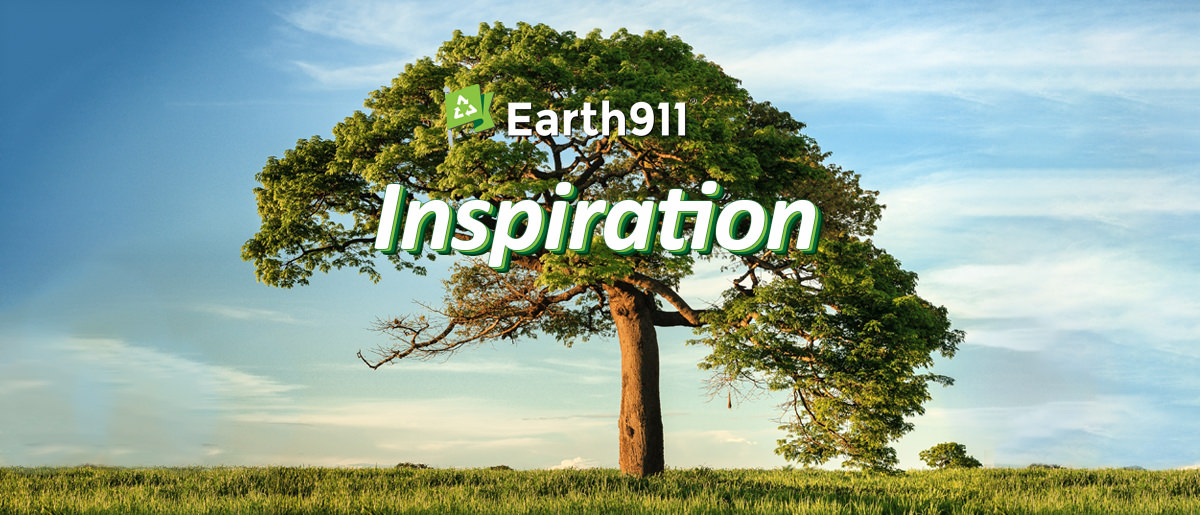
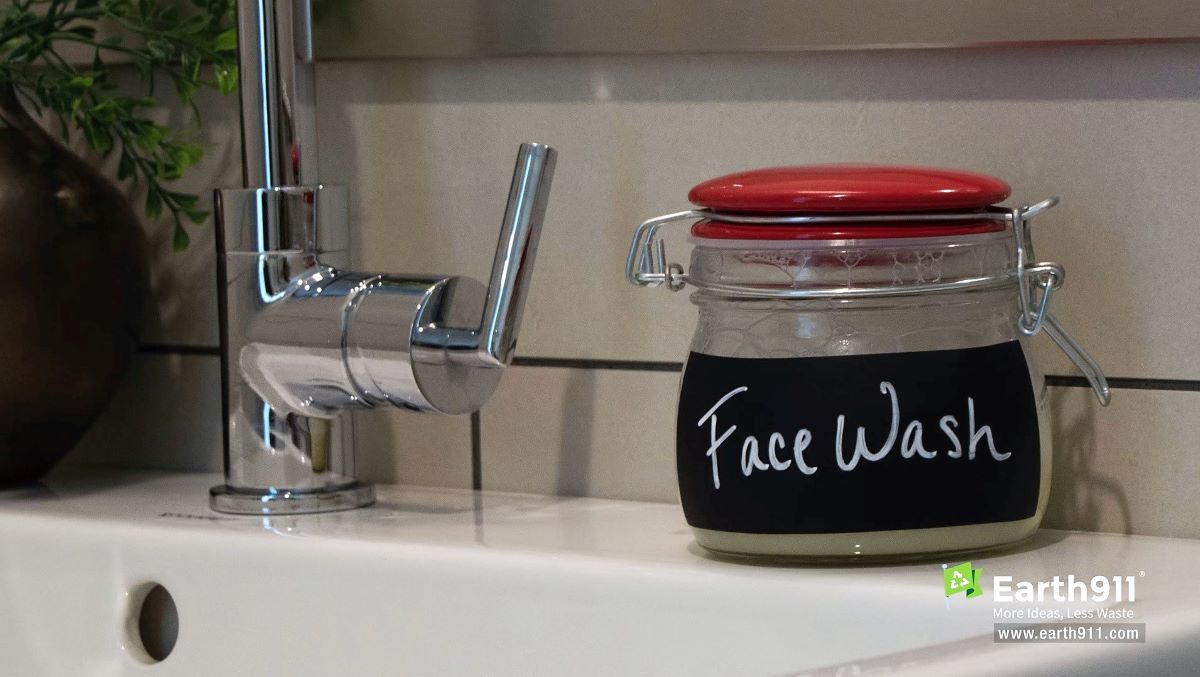
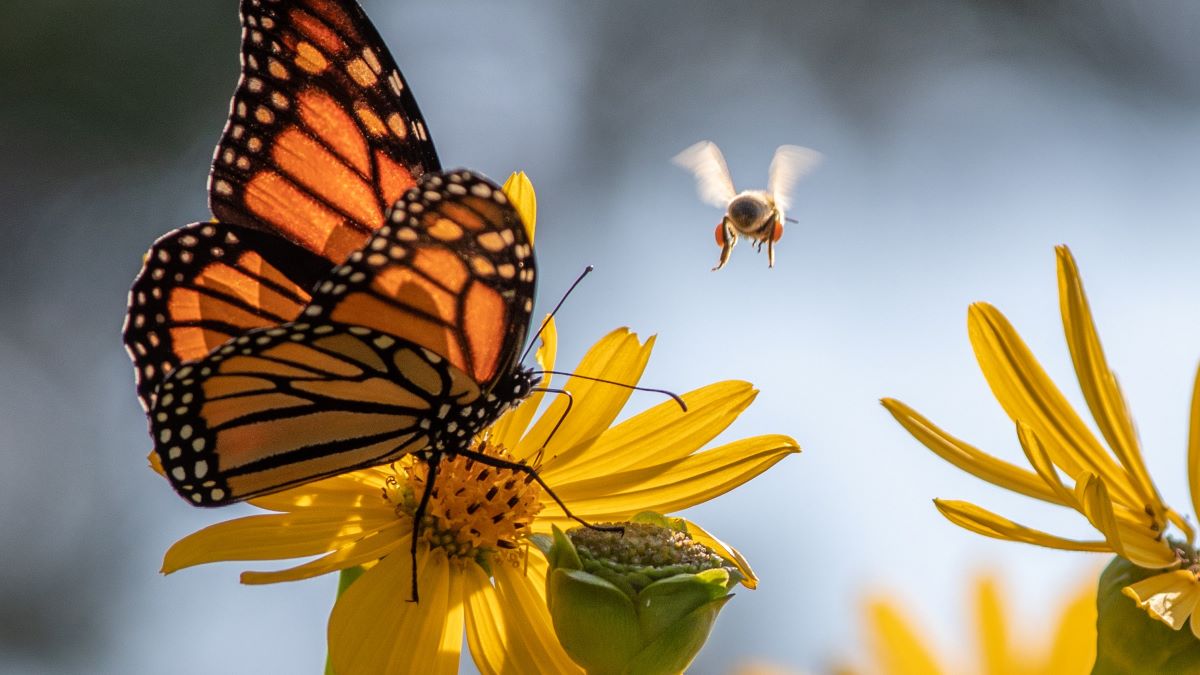











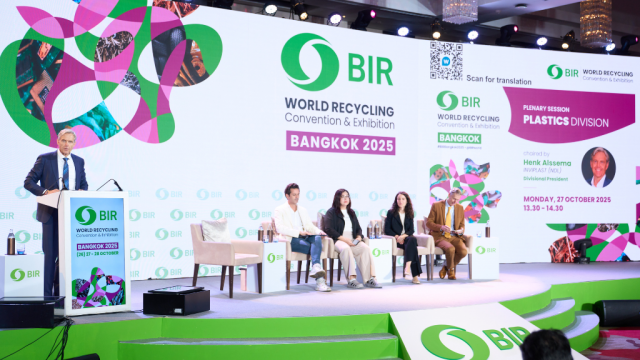
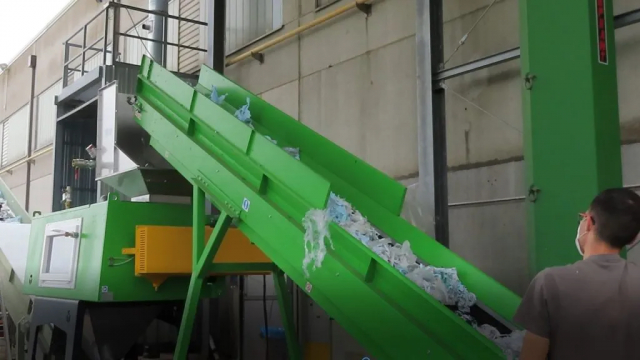
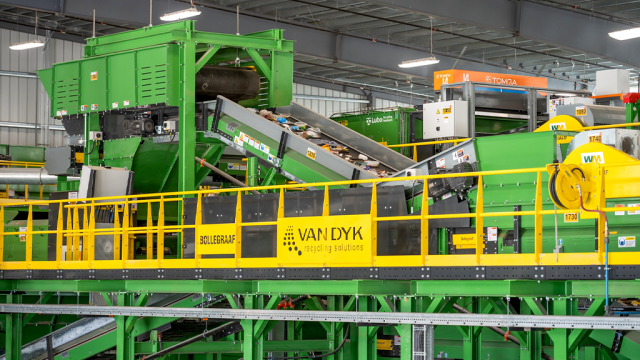
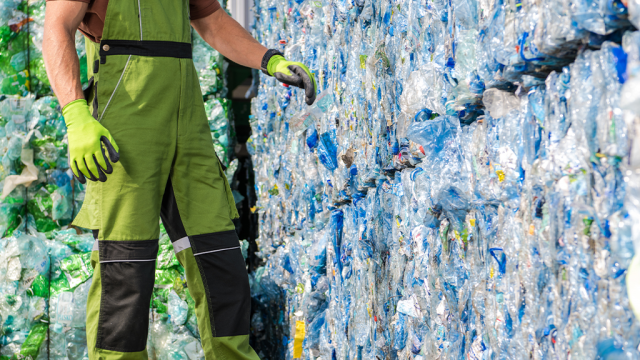
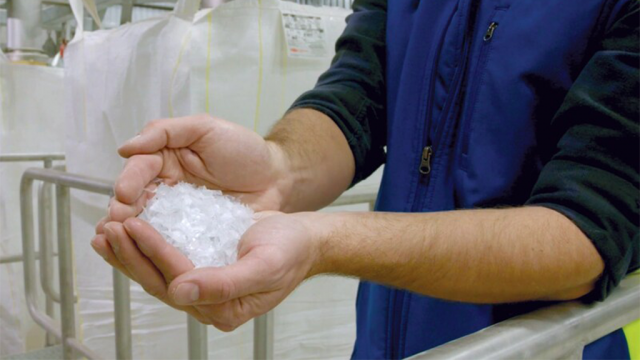
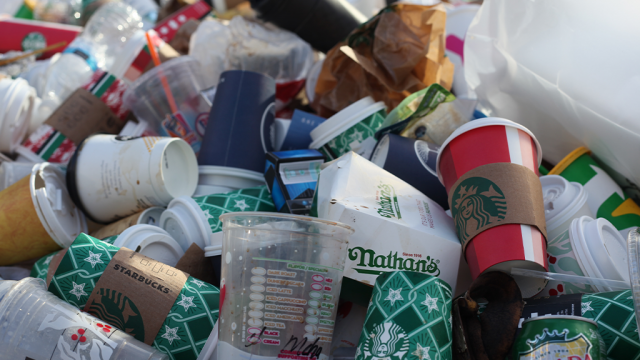

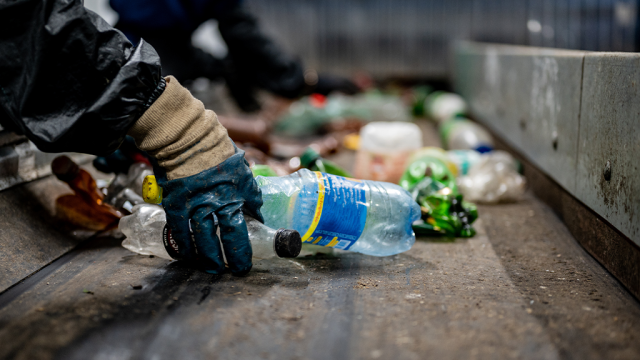



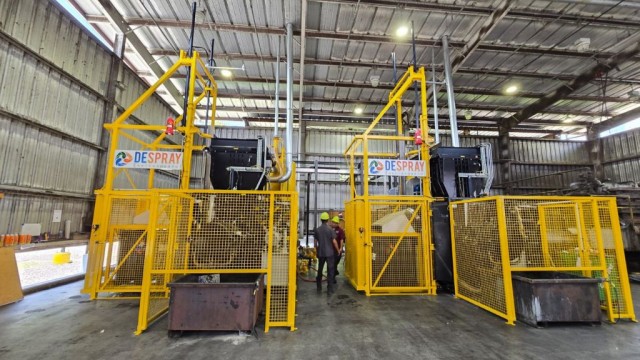
![[VIDEO] Glacier and the evolution of AI and data-driven technology in recycling](https://media.baumpub.com/files/slides/locale_image/medium/0243/60710_en_06c2a_62723_bq4a7681copy.jpg)

